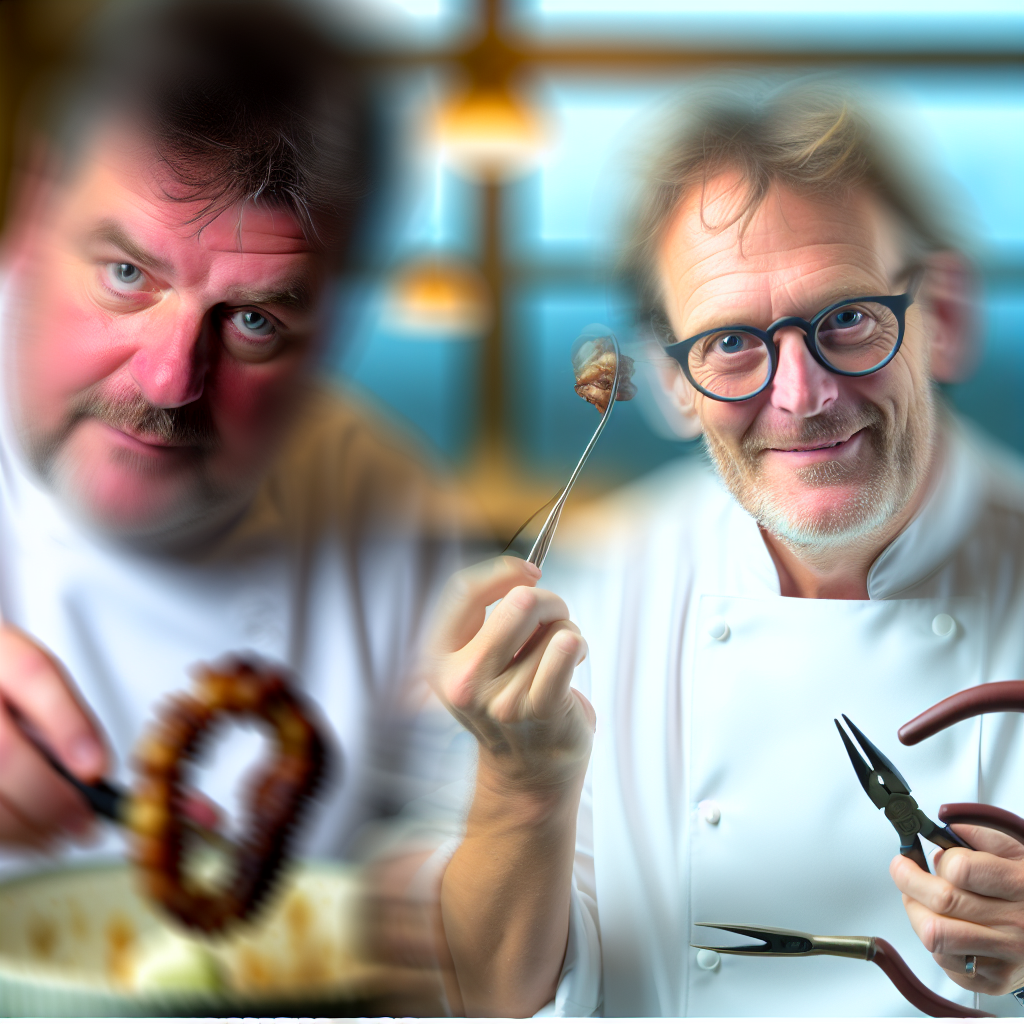
Discover the fascinating worlds of two iconic British chefs, Heston Blumenthal and James Martin. This article delves into their early lives, innovative cooking styles, and lasting impact on television and cuisine. From molecular gastronomy to hearty British classics, we’ll explore how these culinary masters have shaped modern food culture, offering insights into their unique approaches and achievements that continue to inspire home cooks and professionals alike.
The Early Years and Path to Culinary Stardom
Heston Blumenthal, born in 1966 in London, discovered his passion for cooking during a family trip to Provence at age 16. Inspired by a meal at the renowned L’Oustau de Baumanière, he self-taught French classical techniques while working various jobs, including as a credit controller. His scientific curiosity led him to question traditional methods, culminating in the opening of The Fat Duck in 1995. Despite initial financial struggles, the restaurant earned three Michelin stars, revolutionizing fine dining with experimental dishes.
James Martin, born in 1972 in Yorkshire, grew up on a farm where he assisted his mother in the kitchen, fostering an early love for fresh, local ingredients. He trained at prestigious establishments like Hostellerie De Plaisance in France and Chewton Glen Hotel in England, honing his skills in pastry and classic cuisine. Martin’s down-to-earth style emerged from his rural roots, emphasizing comforting, accessible meals that celebrate British heritage.
While Blumenthal’s journey was marked by self-education and innovation, Martin’s was rooted in formal training and family influences, setting the stage for their distinct paths in the culinary world. This foundation allowed both to transition from kitchens to broader platforms, blending tradition with creativity.
Innovative Techniques and Signature Dishes
Blumenthal is celebrated for his pioneering work in multi-sensory cooking and molecular gastronomy. Dishes like bacon-and-egg ice cream and snail porridge challenge perceptions, using science to enhance flavors—such as flavour encapsulation and food pairing. His triple-cooked chips, perfected through experimentation, have become a staple, demonstrating how physics and chemistry can elevate simple ingredients. At The Fat Duck, he creates immersive experiences, incorporating sounds and aromas to engage all senses, earning global acclaim including being named the world’s best restaurant in 2005.
In contrast, James Martin focuses on hearty, straightforward British fare with a modern twist. His recipes often feature seasonal produce and comfort foods, like perfect Yorkshire puddings or indulgent desserts. Known for his butter-laden dishes and no-nonsense approach, Martin popularized techniques like slow cooking for maximum flavor. His work at restaurants and on TV emphasizes accessibility, encouraging viewers to recreate restaurant-quality meals at home without complex equipment.
These differing styles complement each other in the British culinary scene: Blumenthal pushes boundaries with innovation, while Martin grounds cooking in tradition, together influencing a generation of chefs to balance experimentation with authenticity.
Television Presence and Cultural Influence
Blumenthal’s TV career amplified his scientific approach, with series like those on Channel 4 showcasing bizarre yet brilliant recipes, such as edible gardens. His appearances demystify complex techniques, inspiring viewers to experiment. Beyond screen, his product lines and books promote scientific cooking, while his advocacy for mental health, drawing from personal experiences with ADHD and bipolar disorder, adds depth to his public persona.
James Martin rose to fame through shows like Saturday Kitchen, where his charismatic, relatable style made cooking entertaining. Programs like James Martin’s French Adventure explore global influences on British food, blending travel with recipes. His efforts in hospital food reform via Operation Hospital Food highlight his commitment to nutrition and community, extending his influence beyond entertainment to social change.
Their media presence has democratized high-end cuisine, with Blumenthal sparking curiosity in food science and Martin promoting everyday joy in cooking, collectively elevating British gastronomy on the world stage.
In summary, Heston Blumenthal and James Martin represent the diverse spectrum of British culinary excellence—from avant-garde experimentation to comforting traditions. Their journeys from humble beginnings to stardom illustrate passion’s power in transforming food landscapes. Whether you’re drawn to innovative flavors or classic comforts, these chefs encourage exploration in the kitchen. As influencers in TV and beyond, they continue to inspire, reminding us that great cooking blends creativity, science, and heart for unforgettable experiences.